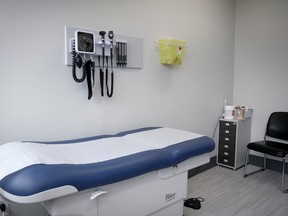With six million people across Canada lacking a family doctor, it’s surprising that health care is taking a backseat and Canadians aren’t up in arms.

Article content
It’s been said time and time again, but as three recent reports demonstrate, it needs to be emphasized once again: the future of family medicine in Ontario and across Canada is increasingly bleak. And yet governments seem unable to find a solution.
It is not surprising that the Ontario Medical AssociationThe section representing family doctors says Ontario’s latest budget “does nothing to help family doctors stay in practice.”
Advertisement 2
Article content
Article content
Figures from the Canadian Resident Matching Service (CaRMS), which matches medical students with residency programs, reported that this year, many graduating students They are rejecting family medicine – and increasingly endangering its future. Apparently, medical students are waking up to the fact that family medicine is no longer the prized specialty it once was and they don’t want to be a part of it. Across the country, 252 family medicine positions were left unfilled, 116 of them in Ontario. That’s up from 103 last year. Unclaimed spots would be offered again next month.
According to a 2023 Commonwealth Fund Survey When it comes to access to primary care in 10 “high-income” countries, including Australia, France and Switzerland, Canada ranked last. The survey found that 86 per cent of adult Canadians reported having access to primary care, up from 93 per cent in 2016. The Netherlands topped the list with 99 per cent, followed by the United Kingdom and New Zealand, each one with 97 percent, and Germany. at 96 percent. In the United States, 87 percent reported having access to primary care. The average was 94 percent. Clearly, Canada has some catching up to do.
Advertisement 3
Article content
Yet another report on changes in family physicians’ practice patterns, prepared by the Canadian Institute for Health Information (CIHI), revealed that almost 30 per cent of Canada’s family doctors work in other specialties, leaving gaps in family care. CIHI also found that family medicine accounted for 76 percent of vacant residency positions in 2023, confirming the steady decline in medical student admissions in family medicine. Taken together, the CaRMS data, the Commonwealth Fund survey and the CIHI report show that the primary care crisis is real and long-standing, and needs urgent government action.
However, if we look at the raw figures of the CaRMS, the problem is not the complete rejection of family medicine. According to Kingston family doctor Brent Wolfrom, former director of the postgraduate family medicine program at Queen’s University, there were 1,700 family medicine places available this year, of which 252 were not filled. This shows that there is still interest in family medicine. But Wolfrom says the problem is that the trend has been downward in family medicine for years, unlike other specialties.
Advertisement 4
Article content
Ten years ago, the intake of family medications was 93 percent. Today it is 85 percent. He says the numbers speak to “a steady decline in medical students’ interest in family medicine” and, if that continues, could undermine primary care, which is the foundation of healthcare. And, over time, there would not be enough new doctors to replace those who are retiring or on the verge of retirement.
Wolfrom says young people entering medicine value quality of life and that “work-life balance” is important to them. But seeing the stress and poor environment in which family doctors currently work, some are choosing other specialties that offer a better quality of life and often much more money.
Affordability has become the issue federal politicians will die for, and rightly so. With inflation stretching people’s pockets and something as basic as owning a home increasingly out of reach for the younger generation, life has become difficult for many Canadians. In difficult times, pocketbook issues often win elections. But with reports of People dying in emergency waiting rooms.emergency departments close due to lack of staff, 2.3 million people in Ontario and six million across Canada without family doctor, it’s surprising that health care is on the back burner and Canadians aren’t up in arms. Now may be the time for politicians to refocus their attention.
After all, what is a good life without good healthcare?
Mohamed Adam is a journalist and commentator from Ottawa. Contact him at [email protected]
Recommended by Editorial
-

Medical students say ‘no thanks’ to family medicine as primary care crisis worsens, doctors say
-

Bilodeau: Old ways of thinking won’t fix Canada’s health care
Article content


